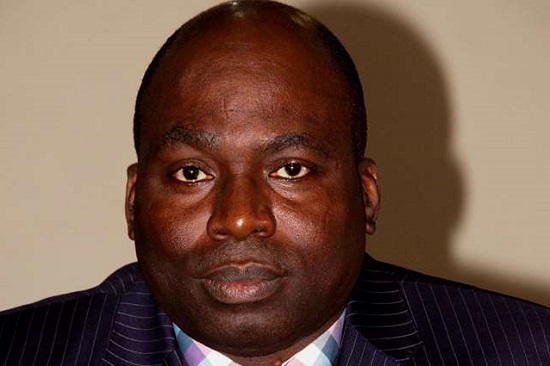BY ADEBAYO ADEKOLA
The Nigerian Constitution provides certain rights to employees as citizens of Nigeria. Employees enjoy these rights regardless of their location, level or grade, and the nature of their job. Most of these rights are termed fundamental rights.
Every citizen enjoys these rights by virtue of being human beings. To appreciate the importance of these rights, I would refer to the words of Late Justice Esho in the case of Ransome Kuti Vs. Attorney-General of the Federation (1985) 2 NWLR (Pt. 6) 211: “Fundamental right is a right which stands above the ordinary laws of the land and which in fact is antecedent to the political society itself. It is a primary condition to a civilised existence and what has been done by our constitution.”
In the case of Odogu Vs. A.G. Federation (2002) 2 HRLRA 82 at 102, Adio JSC defined a fundamental right as a right guaranteed in the Nigerian Constitution. It is a right that every person is entitled to enjoy when he is not subject to the disabilities enumerated in the Constitution.
Advertisement
A particular right tied to the use of social media is the freedom of expression as written in section 39 of the constitution. In the case of the Incorporated Trustees of Paradigm Initiatives for Information Technology Development Vs. The Attorney General of the Federation & 2 others, Suit No. FHC/L/CS/692/16, Honourable Justice M.B. Idris identified freedom of expression and of the press as the most cherished rights of individuals.
The above is one of the strongest arguments in support of the rights of an employee to use and express himself on social media.
However, the Honourable Justice noted that the fundamental rights guaranteed and protected under Part IV of the constitution are not ultimate. They suffer certain limitations. In the case of Badejo Vs. Minister of Education (1996) 9–10 SCNJ 51, the decision of the court that a fundamental human right is a right which stands above the ordinary laws of the land but no fundamental right should stand above the country, state or people also supports the position of Honourable Justice M.B. Idris.
Advertisement
In section 45, the Constitution recognised this limitation as well. However, such restriction will be constitutional when made by law. It is also a court that can enforce such limitation, not a private person.
Social media is an inexpensive and widely acceptable electronic tools used to publish, access information, and exercise the right to freedom of expression guaranteed and protected in section 39 of the Nigerian Constitution. In Nigeria, it has become a tool for fostering or destroying relationships. It has destroyed relationships through individual activities, and one such relationship is the employment relationship.
Some employers have leveraged the social media activities of their employees to boost their corporate image, reach more customers, and improve their revenue. Some employees have also used it to expose the lack of corporate governance, unfair labour practices, and other unspeakable activities of employers. Some employers and employees have used it to malign, ridicule, and rake in undue advantages to themselves. It has also been used to settle grievances instead of exploring the formal medium of dispute resolution.
Some employees’ social media activities have not only affected their employers negatively but have also left their colleagues with unwarranted exposure and infringement of their fundamental rights. The question therefore remains, should employers wait for damage to be done before regulating the social media activities of their employees? Or should they do so without any prompting?
An employment relationship is established with a contract of employment. This is considered as a contract with terms and conditions regulating the activities of the employer and employee during the employment period.
Advertisement
Some employers have formulated policies to regulate the social media activities of their employees. Some contracts of employment use social media clauses, and this innovation is not out of place. Most boilerplates clauses that have crept into contracts of employment in Nigeria were innovations adopted from general commercial contracts.
Years ago, many employers did not consider the importance of non-disclosure or non-circumvention clause in a contract of employment, Likewise, the incorporation of force majeure clause became a major innovation following the coronavirus pandemic.
The inclusion of social media activities clause in a contract of employment becomes an expected standard of behaviour from an employee concerning his activities on social media. It is binding on both the employer and employee. A viable argument in support of this is that the basic principle of the binding nature of terms and conditions of a contract would apply to a contract of employment.
Section 91 of the Labour Act defines a contract of employment as an agreement, whether oral or written, express or implied whereby a person agrees to employ another as a worker and that other person agrees to serve the employer as a worker.
Advertisement
In the case of Al Bishak Vs. National Productivity Centre, CA/L/563/2010, the Court of Appeal, relying on the established principle of law that parties are bound by the terms of their contractual agreement which courts are enjoined to give effect to, held that Exhibit P1 which is the contract of employment between parties, in that case, must be followed to the letter except there is a proof of illegality or fraud.
In the case, the employee agreed to the terms contained in paragraph 3 of the contract of employment—that the 1st respondent can extend the period of probation as deemed advisable.
Advertisement
Although the facts of this case are different and have nothing to do with the use of social media, it is an authority for enforcement and reliance on the binding nature of terms of contract of employment accepted by the employer and employee.
The inclusion of the social media activities clause in the terms and conditions of a contract of employment, or creating a social media policy, would not be a breach of the fundamental rights of the employee. The same constitution recognises the freedom of citizens to associate and engage in economic activities.
Advertisement
Article 22 of the International Covenant on Economic, Social, and Cultural Rights adopted on December 16, 1966, which entered into force on January 3, 1976, and Section 16 of the Nigerian Constitution contain specific provisions that recognise the economic, social, and cultural rights of every citizen.
Also, in the case of Enemchukwu Vs. Okoye and another, CA/E/273/2008 (2016) NGCA 10, the court recognised that parties are bound by their agreement in civil matters. The courts do not interfere in the manner parties choose to do business with each other as long as it is not criminal. Where contracts are voluntarily accepted by the parties, the contracts become binding on them based on the terms they have set out for themselves.
Advertisement
Thus, signing any social media activities terms and conditions in a contract of employment, or accepting any social media policy by an employee, has an overriding effect on the use of social media, and the freedom of expression of an employee. Social media activities of such employee must conform with the social media activities terms and conditions in the contract of employment.
Most terms and conditions of contracts of employment have sanctions and consequences in case of any breach. In essence, the sanctions provided by a contract of employment can be levelled against an employee where he or she violates the term and conditions of the contract.
So, where the terms and conditions include provisions on social media activities and an employee breaches the said terms and conditions, the general sanctions can be levelled against such an employee.
A viable way of regulating social media activities of employees is to include terms and conditions on social media activities in the contract of employment or create a social media policy.
A mere breach of any term of contract without actual damage to the other party is sufficient reason for the other party to implement appropriate remedies provided for in the contract or law. So, the social media activities of an employee do not necessarily have to cause damages to the employer before the employer can take disciplinary actions against the employee.
To resolve the bone of contention between the parties in the case of Enemchukwu Vs. Okoye, the Honourable Justice Helen Moronkeji Ogunwumiju J.C.A emphasised that a contract is an agreement between two or more parties creating obligations that are enforceable or otherwise recognised by law. The Honourable Justice relied on the Black’s Law Dictionary (8th Edition) which defines a contract as a promise or set of promises for breach, which the law gives a remedy or the performance of which the law recognised as a duty.
While there are no available decided cases by a Nigerian court on the social media activities of employees or the rights of an employer to regulate and sanction such activities, there is a presumption that the argument above on the binding nature of terms and conditions of a contract on parties would only apply to a written contract of employment. This is another strong argument in favour of persons who may hold the view that the employer cannot regulate and sanction the social media activities of employees. I also hold the same presumption.
Whatever parties do not agree with, is not binding or enforceable. Parties cannot claim rights, duties, and liabilities on what is not agreed to. This is in line with the basic principle of law as pronounced in several cases, such as Kaydee Ventures Ltd Vs. The Honourable Minister of FCT & 2 ORD (2010) 7 NWLR (Pt. 1192) 171 at 217-218 that where an agreement has been reduced to writing, none of the parties can contend that, besides the written terms and conditions, there are extraneous matters capable of modifying the agreement.
Documentary evidence speaks for itself. It is a fundamental type of evidence, most preferred, and reliable evidence in court. Proving a case of disciplinary actions against an employee without any written or agreed documentary evidence between the employer and employee on social media activities would be a tough one.
In the case of Babatunde Vs. Model Industries Nigeria Limited (2004) 9 NWLR (Pt. 879) 614 at 627, the court explained that documents by nature are records of fact, happenings, transactions, activities, and are the best form of evidence in the proof of a party’s claim before the court.
Another strong argument in support of the rights of an employee to use and express himself on social media would be to rely on the principle, ‘‘nullum crimon sine lege, nulla poena sine lege’’ – there must be no crime or punishment except in accordance with fixed, predetermined law. That one cannot be guilty of an offence unless the punishment to that offence is also prescribed by a written law. By extension, an employee cannot be punished for his social media activities where there are no known terms and conditions, regulations, or social policy in place by the employer.
A well-written policy or terms and conditions on social media activities in a contract of employment explains what is expected of the employees and the rights of employers to regulate and sanction the social media activities of their employees.
Adebayo Adekola, Team Lead/Founder, Taitum Legal Practitioners, Convener, Labour Laws Review. +2348165299774, +2349097066504, Adekolabayo@gmail.com, https://www.linkedin.com/in/bsadekola/
Views expressed by contributors are strictly personal and not of TheCable.
Add a comment






